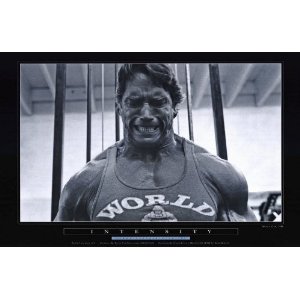As you can surmise, I really love Dickens' novels. And how I came to find him was sorta funny and odd. My grandmother had a 'giftschrank'. (poison cupboard, I don't know of an english equivalent for that...). Actually, it was a curtained-off shelf where the books were in her living room. And I was warned, the books behind the curtain were off limits. Adult stuff
Well tell a kid verboten, and you know he's gonna go looking. And I did. My first find was Oliver Twist. I assume it was the opening scene that got him assigned to the giftschrank. Born out of wedlock, and it was clear what that was. 'Ah, no wedding ring, I see.' That was enough in the 50's to merit giftschrank status, I guess. So I read it on the sly. Wow. Fagin and the Artful dodger, and multiple kidnappings, and oh yeah Nancy... I didn't catch the fact she was a prostitute. I was only eight. I thought she just stole stuff.
When Peyton Place came out, it too was relegated to the giftschrank. And my father, 'the Venerable' had worked with Grace Metallious in a factory before she got published and became a success, so there was a lot of whispering, and shocked sotto voce discussions, because everyone knew who the characters in the book really were, and it was.... ahem... a scandal. Of course I got my hands on that one too, rifling through it trying to find 'the good stuff', but it seemed rather boring. And promptly got caught and the hand of wrath met my backside in three strikes. Which didn't bother me. I just couldn't figure what the fuss was about. Boring.
I didn't even see the film until the late 70's in an art movie house in Austria, and was disappointed to find it wasn't that big a deal after all.
Sorry for the digression, but it sort of made me smile. Middle of the night reminiscences don'tcha know...
Back to Dickens. My father remarried, we had our own place, and it had an attic room, and I loved spending hours up there on rainy days. There were books from his childhood, and back then, they weren't very warm and fuzzy, they were more like unexpurgated Grimm. Scary, sort of. One of them creeped me out so much I read it several times. Kids like scary stuff. It was called Red Feather and had something to do with changelings. Then there was the Webster's Dictionary from the early 40's I think, and I would pore over it for hours. Words, meanings, adjectives, it was fascinating. And in that, I discovered the fact that Dickens had written a lot of other novels, and the characters had gone into the language of the time as late as the 1940's. Pecksniff, pecksniffian, for instance. Denoting hypocrisy. Fascinated me.
So I began collecting his novels wherever I could find them. Many were out of print, but I persevered. (Nowadays you can download them in a flash from the internet, but hey, we didn't have that back then. So there was the thrill of the hunt.)
All of the ones available had one thing in common. Scholarly introductions. And the snobs who wrote them were supposed to explain and praise what was to come, but it was the school of thought that he certainly wasn't of a caliber as Dostoyevski, say, but there were certain benefits to reading that particular novel.
And to a professorial man, they always carped about the same things: the caricature, they maintained the coincidences that moved the plot were heavy-handed and improbable, and of course, disparaged his messed up view of his female characters. On the latter point they were mostly right. The women are either impossibly good and angelic, or the rest are very true to life, so that grates, I'll concede that. It's the unhappy ones who ring true, and are entertaining. And Victorian conventions were also mostly ignored by the scholarly egg-heads who wrote their oh-so-scholarly intros.
What they failed to achieve was putting it in the context of the historic times he was writing them. Most people were illiterate. And instead of tee-vee, when the books came out in serial form, usually four chapters at once, those who could would read them in a pub or inn to those who couldn't. And there were so many characters in them, using a catch-phrase made them immediately recognisable to the listeners. As to coincidences... well have had some of the weirdest happen in my life where one would say, 'impossible'. Such as getting off a subway one evening in Munich and directly in front of me was a person I worked with in the cinema who had decided to come visit. I'd had no idea. 'Oh, I was looking for you.' Coincidence? Impossible? Happened...
So yes, one might see some things in the novels as 'drawbacks'... but actually the themes are universal and as true today as they were during his time.
Sometimes a trip back in time is instructive.
And btw... the BBC films do very nicely in toning down the quirks that were so abrasive to a modern reader. Although they did have a field day letting Smallweed in Bleak House do all the tag-lines. 'Oh my bones! You brimstone beasts! I'm all crunched! Shake me up, Judy!' That. was delightful. Peter fell apart laughing over him, and Smallweed is a villain in the piece.
Yeah, you had to be there, you know???








